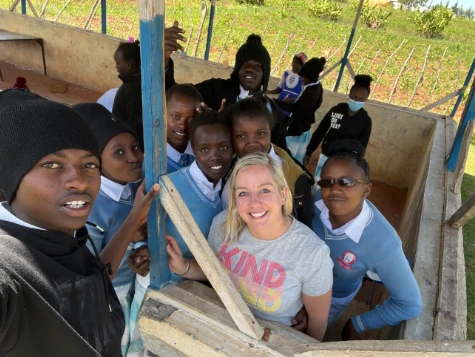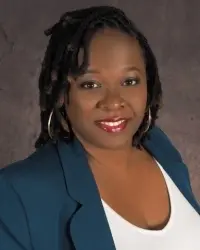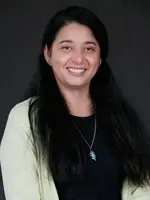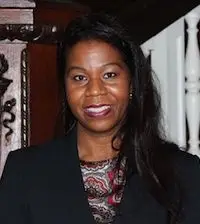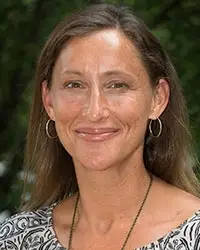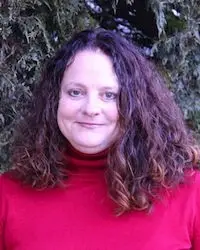Sample Part-time Schedule for Generalist Track
Note: We offer 6 other concentration options, and while the schedule for degree completion will vary, in general, the timeframe for completion as a part-time student is 3 to 3.5 years. Graduate students who pursue the degree on a full-time basis can often complete the degree in two years.
Year One
| Fall |
Spring |
Summer |
| PSYG 500: Theories of Counseling & Psychopathology (3) |
PSYG 514: Development Across the Lifespan: Individual and Family (3) |
PSYG 506: Techniques of Counseling and Psychotherapy II (3)
(prereq: 503) |
| PSYG 503: Psychopathology (3) |
PSYG 512: Legal and Ethical Issues (3)
prereq: 500, 503 |
PSYG 532: The Role of Culture & Gender in Counseling & Psychotherapy (3) |
| 6 total credits |
12 total credits |
18 total credits |
Year Two
| Fall |
Spring |
Summer |
| PSYG 508: Techniques of Counseling and Psychotherapy II (3)
prereq: 506 |
PSYG 536: Psychological Assessment (3)
prereq: 500, 503 |
PSYG 622: Intro to the Assessment and Treatment of Psychological Trauma (3) |
| PSYG 608: Couple and Family Therapy (3) |
PSYG 652: Intro to Autism (3)
prereq: 500, 503 |
PSYG 530: Group Therapy (3) |
| PSYG 662: Assessment and Treatment of Children and Adolescents (3) |
PSYG 542: Career Development and Counseling (3) |
|
| 27 total credits |
36 total credits |
42 total credits |
Year Three
| Fall |
Spring |
Summer |
| PSYG 70: Practicum (3) |
PSYG 715: Internship I (3)
prereq: 705 |
PSYG 725: Internship II (3)
prereq: 715 |
| PSYG 630: Foundations of Addictive Behavior (3) |
PSYG 657: Working with Ethnically Diverse Couples and Families (3) |
PSYG 604: Systemic Approach to the Problems of Adolescents (3) |
| 48 total credits |
54 total credits |
60 total credits completed |
Child and Adolescent Therapy
In this concentration, preparation for competent and ethical practice with children and adolescents will include an understanding of developmental issues and the range of psychological problems of children and adolescents. Students will learn the application of effective individual and family systems interventions, including play therapy. Course content will be examined through a neuroscience, multicultural and social justice framework.
In addition to fulfilling the educational requirements for licensure as a professional counselor in Pennsylvania and in many other states, this concentration prepares the student for effective psychotherapy and advocacy in settings including outpatient and residential treatment centers for children and adolescents, hospitals and school-based programs. Child & Adolescent Therapy concentration prepares students for various counselor positions working with children and adolescents.
Child and Adolescent Therapy with Specialization in Autism Spectrum Disorders
In this concentration, preparation for competent and ethical practice with children and adolescents will include an understanding of developmental issues and the range of psychological problems of children and adolescents. Students will learn the application of effective individual and family systems interventions, including play therapy. Course content will be examined through a neuroscience, multicultural and social justice framework.
In addition to fulfilling the educational requirements for licensure as a professional counselor in Pennsylvania and in many other states, this concentration prepares the student for effective psychotherapy and advocacy in settings including outpatient and residential treatment centers for children and adolescents, hospitals and school-based programs. Child & Adolescent Therapy concentration prepares students for various counselor positions working with children and adolescents.
Co-Occurring Disorder
Through the study of theoretical approaches, research, and treatment models of addiction, students will become proficient in understanding the intersectionality of co-occurring mental illness and substance abuse disorders. Students will apply their knowledge of assessment and treatment within individual, family and community contexts and supervised clinical practice.
In addition to fulfilling the educational requirements for licensure as a professional counselor in Pennsylvania and in many other states, this concentration will prepare students to be competent practitioners in the contemporary substance abuse treatment workplace setting, including outpatient and inpatient residential treatment centers.
Couple and Family Therapy
This concentration offers a comprehensive study of family systems theories along with numerous opportunities for practical application through use of live in-class and video role-playing sessions in family and couple counseling. Students will learn about systems focused treatment of specific populations, including adolescents and addictions, and will be prepared to competently assess and treat diverse families and couples.
Completion of this concentration fulfills the educational requirements for licensure as a Marriage and Family Therapist in Pennsylvania and in many other states. Graduates of the program with this concentration are positioned to work in family therapy treatment settings, but are not limited to working only with couples and families. MFT’s provide therapy in a wide range of settings for individuals across the lifespan from a systems-informed treatment approach.
Diverse and Underserved Communities
Multicultural and social justice counseling competence is now a requirement for all practitioners. This concentration is designed to enhance this area of professional competence through an in-depth study of the salient topics and cultural group courses. Students will be learning directly from faculty with particular expertise in diversity and treatment approaches for various cultural groups, and will be actively engaged in a dynamic learning environment in each of these courses.
Completion of this concentration in the program fulfills the requirements for licensure as a professional counselor in Pennsylvania and many other states, and reflects a strong commitment to the journey of becoming an effective multicultural counselor and social justice advocate for communities that are frequently underserved. Graduates of this concentration often have an interest in working with specific cultural groups (e.g. Latino families, LGBTQ communities, urban communities impacted by poverty). The Diverse and Underserved Communities concentration prepares students for various counselor positions working with the underserved and poverty stricken population.
Trauma Studies
Through didactic and experiential opportunities, the course work in this concentration will provide you with a competent and foundational knowledge base in conceptualizing, assessing and treating clients who have experienced a wide range of traumatic events in their lives. Self-awareness activities along with self-care practices will be addressed and utilized throughout this curriculum.
This concentration fulfills the educational requirements for licensure as a professional counselor in Pennsylvania and in many other states. Given the high lifetime prevalence rate of traumatic experience, this concentration would benefit all helping professionals in any type of workplace setting in providing trauma-informed care.
A licensed practitioner with a concentration in Trauma Studies would be especially well positioned for employment in treatment centers working with high risk populations such as survivors of war and natural disaster, interpersonal and domestic violence, sexual assault and offense, juvenile justice and correctional populations, and community mental health.
Generalist
Students interested in taking courses in multiple concentration areas can customize their own course of study by pursuing the Generalist track. Students may select from concentration courses and general electives.


